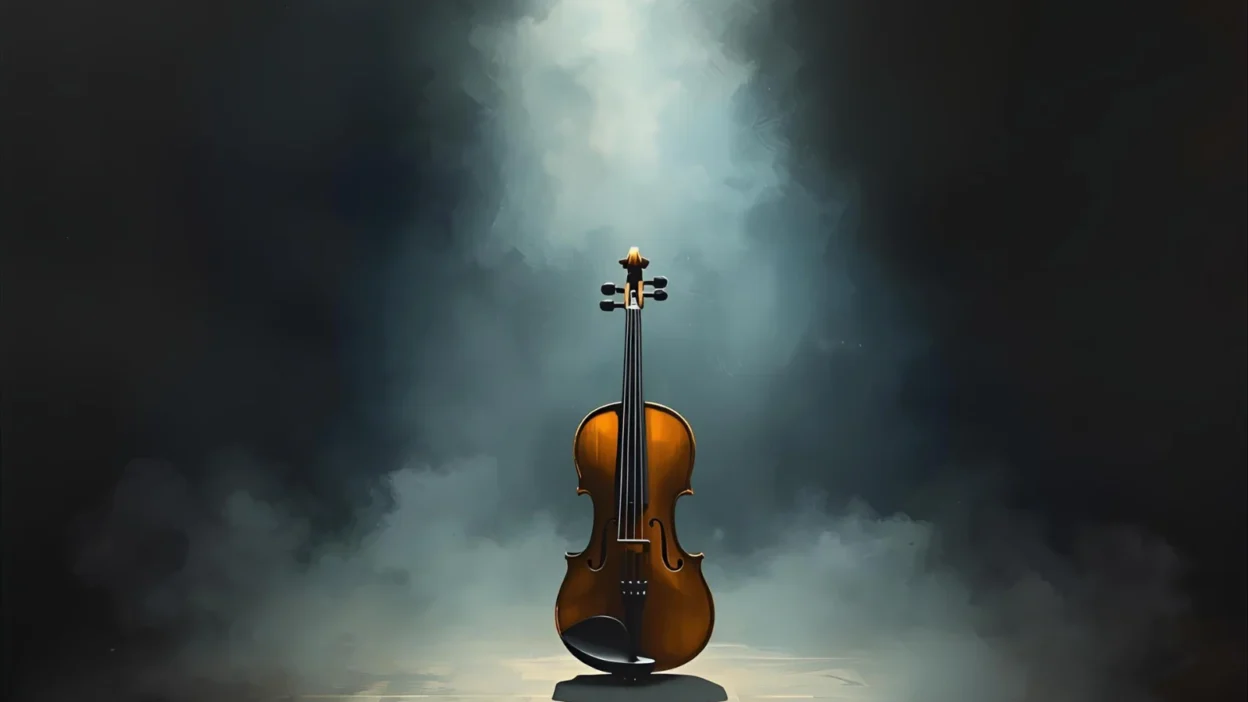Introduction: When Life Drops the Beat of Symbolism
Have you ever been stuck in traffic, your favorite song blasting, and suddenly you feel like the universe just gets you? That’s the magic of music symbolism. In 2025, people aren’t just listening to songs—they’re decoding them like spiritual texts, memes, or love notes from the universe. Music isn’t only entertainment anymore; it’s therapy, a TikTok trend waiting to happen, and yes, a pun factory (because who doesn’t love a good “note”-worthy joke?).
The audience for music symbolism is growing because more and more of us crave deeper meaning. Whether it’s that one lyric you keep replaying, the instrumentals that give you goosebumps, or even the silence between notes—music has always carried symbols of love, healing, rebellion, and transformation.
This article takes you on a symphonic journey through 10 unique aspects of music symbolism. We’ll strike chords with history, dive into emotions, and hit high notes with cultural meaning—without making it sound like a boring music theory class. Instead, think of this as your front-row seat to understanding why music is more than just sound—it’s a symbol of life itself.
H2: Music Symbolism in History
- From ancient drums to Gregorian chants, music has always carried sacred symbols.
- Egyptian flutes weren’t just instruments; they were believed to call on divine forces.
- Medieval monks used hymns as symbols of discipline and devotion.
- Indigenous tribes saw rhythms as the heartbeat of Mother Earth.
- The Renaissance turned music into a symbol of knowledge and humanism.
- Protest songs of the 20th century symbolized resistance and unity.
- Romantic-era compositions reflected passion, freedom, and emotion.
- Jazz became a symbol of rebellion and creativity in American culture.
- Rock ’n’ roll carried the symbolic energy of youth and revolution.
- Every era has shown us that music is a mirror of human history.
H2: Music Symbolism in Literature
- Shakespeare often used songs to symbolize hidden truths in his plays.
- Poets likened music to the voice of the soul.
- Novels often reference melodies to symbolize love or memory.
- Music in literature can symbolize escape from reality.
- Authors use musical silence to represent loneliness or tension.
- Jazz in novels often symbolizes freedom and improvisation.
- Ballads symbolize storytelling through emotion.
- Music is written as a metaphor for time and rhythm of life.
- Many stories use a single song as a symbol of identity.
- Literature proves that music is more than heard—it’s felt in words.
H2: Music Symbolism in Religion
- In Christianity, hymns symbolize praise and divine connection.
- Hinduism sees mantras as vibrations of the universe.
- Islamic call to prayer symbolizes discipline and devotion.
- Buddhist chants are symbols of peace and meditation.
- Gospel music carries symbols of hope and salvation.
- Drumming in tribal rituals symbolizes ancestral guidance.
- Organ music in cathedrals symbolizes heavenly presence.
- Religious music often symbolizes the bridge between human and divine.
- Sacred songs carry collective symbols of faith and unity.
- Across religions, music is seen as the language of the spirit.
H2: Music Symbolism in Dreams
- Hearing a song in dreams often symbolizes messages from the subconscious.
- Dreaming of instruments can symbolize hidden talents.
- A broken instrument may symbolize blocked expression.
- Singing in dreams often reflects confidence or healing.
- Hearing sad music may symbolize suppressed emotions.
- Upbeat music in dreams signals joy and progress.
- Repeating songs symbolize unfinished lessons in life.
- Dream concerts can symbolize desire for recognition.
- Forgotten melodies may symbolize memories fading away.
- Dreams remind us that music is a symbol of inner guidance.
H2: Music Symbolism in Love
- Love songs symbolize the heartbeat of romance.
- A shared song becomes a symbol of shared memory.
- Lyrics can symbolize unsaid emotions.
- Music often marks the milestones of relationships.
- Sad songs symbolize loss but also healing.
- Duets symbolize partnership and harmony.
- A mixtape (yes, still symbolic in 2025) symbolizes thoughtful love.
- Music is often used to symbolize flirting or passion.
- Breakup playlists symbolize rebirth and independence.
- In love, music is a symbol of both beginning and ending.
H2: Music Symbolism in Movies
- A soundtrack often symbolizes the soul of a film.
- Horror movies use sound to symbolize fear and suspense.
- A single violin note can symbolize loneliness.
- Jazz in film often symbolizes coolness and freedom.
- Silence in movies symbolizes tension or grief.
- Classical scores symbolize grandeur and timelessness.
- Love scenes use soft music as a symbol of intimacy.
- Action films use beats as symbols of adrenaline and danger.
- Children’s movies use playful tunes as symbols of innocence.
- Music in cinema becomes a character itself, telling the story.
H2: Music Symbolism in Tattoos
- A treble clef tattoo symbolizes love for music.
- Musical notes symbolize memories tied to songs.
- Headphones symbolize escapism and self-connection.
- Lyrics inked symbolize life’s personal soundtrack.
- A heartbeat with notes symbolizes music as life force.
- Instruments symbolize passion and identity.
- Minimalist music tattoos symbolize simplicity in love for art.
- Soundwave tattoos symbolize immortalized voices or songs.
- Tattoos of records symbolize nostalgia and timeless vibes.
- Music tattoos are personal symbols of expression beyond words.
H2: Music Symbolism in Healing
- Music therapy symbolizes restoration of mind and soul.
- Calming tunes symbolize peaceful recovery.
- Drums symbolize release of energy.
- Singing bowls symbolize chakra alignment.
- Lullabies symbolize comfort and safety.
- Classical music often symbolizes mental clarity.
- Group singing symbolizes community healing.
- Lyrics can symbolize validation of emotions.
- Nature sounds mixed with music symbolize balance and grounding.
- Music symbolizes the universal healer of emotions.
H2: Music Symbolism in Culture
- Hip-hop symbolizes resistance and self-expression.
- Country music symbolizes roots and storytelling.
- K-pop symbolizes youthful energy and global unity.
- EDM symbolizes freedom on the dance floor.
- Reggae symbolizes peace and resistance.
- Blues symbolizes resilience in struggle.
- Pop music symbolizes trend and collective identity.
- Rock symbolizes rebellion and transformation.
- Folk music symbolizes heritage and tradition.
- Across cultures, music is a symbol of collective voice.
H2: Music Symbolism in Everyday Life
- A ringtone can symbolize identity and mood.
- Workout playlists symbolize strength and motivation.
- Singing in the shower symbolizes joy and freedom.
- Background music in cafés symbolizes ambiance and creativity.
- Car karaoke symbolizes stress release.
- Weddings use music to symbolize union and love.
- Funerals use music to symbolize farewell and remembrance.
- Parties use music as a symbol of community and fun.
- Graduation songs symbolize endings and new beginnings.
- Everyday music becomes a symbol of life’s rhythm itself.
Conclusion: Your Life Is Already a Playlist
So, what does music symbolism really teach us? That every beat, lyric, or silence holds meaning—just like moments in our lives. Music is not just background noise; it’s a symbol of hope, healing, love, culture, and expression.
As you move through 2025, think of your life as a playlist filled with different tracks—some loud, some quiet, but all meaningful. If this article struck a chord, share it with someone who needs a little reminder that their story already has its own soundtrack. And hey, feel free to copy some of these puns—they’re “note”-worthy enough to trend!




